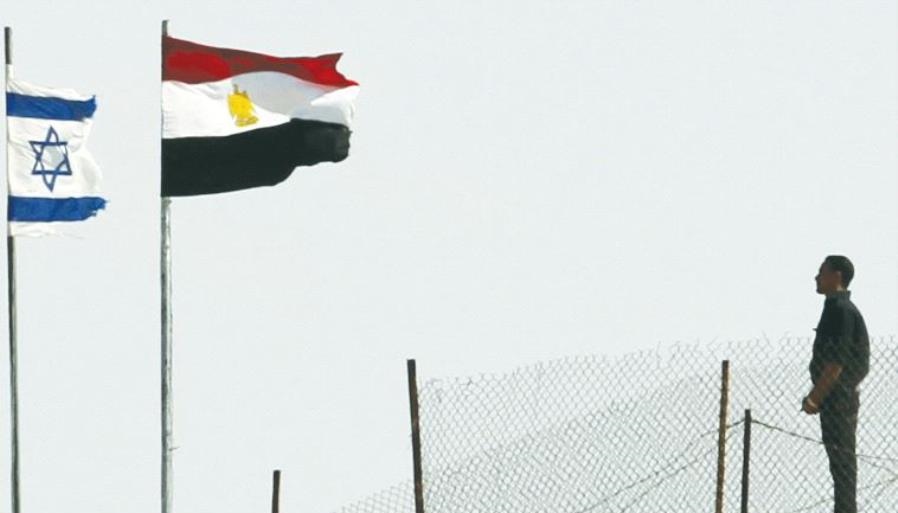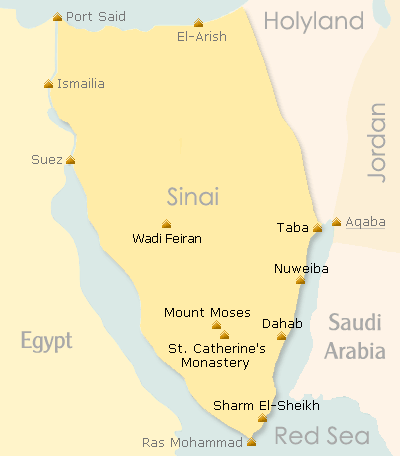Israel-Egypt find common ground
February 6, 2018 | Expert Insights

Israel has reportedly been conducting a secret air campaign on jihadists in the Sinai Peninsula in Egypt with the blessing of Egyptian President el-Sisi.
The New York Times has reported that these strikes have been taking place for the past two years. This is surprising development for two nations that share a relationship often described as “cold peace.”
Background
Israel is the world's only Jewish state. In the immediate aftermath of the creation of Israel, a war between Arab nations and Israel took place. The Arabs were initially on the offensive, but their military resources dried up when the UN declared an arms embargo on the region. Thus, Israel shares a complicated relationship with rest of the Arab world.
However, ties have improved over the years especially between Israel and Egypt. The countries fought in the 1948 Arab–Israeli War and the Yom Kippur War in 1973. In 1979, the two nations signed the Egypt-Israel Peace Treaty. Full diplomatic relations were established on January 26, 1980. They share a border and Egypt has since emerged a strategic partner for Israel. Nevertheless, the relationship is sometimes described as a "cold peace" with many sceptical about its effectiveness.
Sinai Province
The Islamic State of Iraq and the Levant – Sinai Province is a militant Islamist group active in the Sinai Peninsula of Egypt. It is the most active insurgent group in Egypt. Earlier it was called Ansar Beit al-Maqdis but pledged alliance to ISIS in 2014. Sinai Province is thought to be aiming to take control of the Sinai Peninsula in order to turn it into an Islamist province run by IS. Reports have suggested that there are at least 1,000 to 1,500 active Sinai Province militants still active in the region. The group has been linked to a number of terror attacks including a series of attacks against the army in 2015. Sinai Province has been operating mainly in North Sinai, which has been under a state of emergency since October 2014 when 33 security personnel were killed in an attack claimed by the group.

Analysis
In a surprising turn of events, the New York Times has reported that for the past two years Israel has been using "unmarked drones, helicopters and jets" in a secret air campaign on jihadists in the Sinai Peninsula. This is being conducted with the blessing of Egyptian President el-Sisi.
The New York Times has summarized the new development in the ties between the two countries by noting, “The remarkable cooperation marks a new stage in the evolution of their singularly fraught relationship. Once enemies in three wars, then antagonists in an uneasy peace, Egypt and Israel are now secret allies in a covert war against a common foe.”
The report has gone on to note that these strikes have played a key role in the region. Reportedly, American officials say Israel’s air campaign has played a decisive role in enabling the Egyptian armed forces to gain an upper hand against the militants. For the first time since the group took over Sinai, Egyptian authorities have been able to claim the upper hand in the conflict. The New York Times have also cited American intelligence forces noting that this is due to Israel’s intervention and its advanced military prowess and tactics. Israel has also been able to secure its borders by keeping the militant outfit in check. The two nations have not publicly commented on the report as even now they rarely comment on any collaborative efforts.
Egypt isn’t the only Arab nation that’s growing closer to Israel. Reports have noted that Israel and Bahrain are on the path to normalize their relations in 2018. Even nations like Saudi Arabia stopped viewing Israel as an adversary. In 2015, Israel opened its first every diplomatic mission in the United Arab Emirates.
Assessment
Our assessment is that the latest development indicates the shifting geopolitics in Middle East. While the posturing between Arabs and Israelis has been more adversarial, we have seen close collaboration between Arab states and Israel especially after the resurgence of the conflict between Iran and Saudi Arabia. Arab nations are working towards normalizing relations with Israel. It also depicts how two nations who otherwise share tense relations can strike a strategic partnership with their security is threatened. Egypt has struggled to take back Sinai in the past four years and Israel acted in a bid to secure its own borders. We believe that this reiterates the adage that there are no permanent friends or enemies in international politics.








Comments